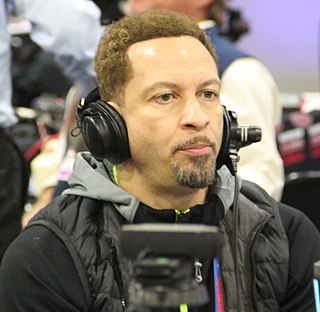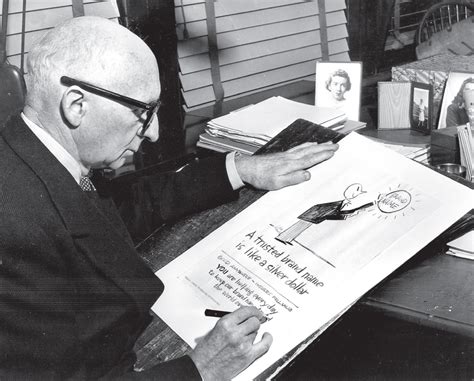A Quote by Wes Jackson
It is doubtful that the dissection of living animals and plants could be done by those who believe them to be holy. A pantheist would not view trees as so many board feet in the manner a Christian would. A pantheist would be less likely to measure the number of acre feet coming over a waterfall than his Christian descendent, centuries later who had become a scientist. That which is sacred would be handled with a certain reverence.
Related Quotes
I would know any man as a Christian, would rejoice to know any man as a Christian, whom Jesus would recognize as a Christian; and Jesus Christ, I am sure, in these old days recognized His followers even if they came after Him with the blindest sight, with the most imperfect recognition and acknowledgment of what He was and of what He could do.
People who think they have no belief quite often say they want to pray but they do not know who or what they could be praying to. Aquinas would not say to such people, 'Ah, but you see, if you became a believer, a Christian, we would change all that. You would come to understand to whom you are praying.' Not at all. He would say to such people, 'If you became a Christian you would stop being surprised or ashamed of your condition. You would be happy with it. For faith would assure you that you could not know what God is until he reveals himself to us openly.'
The relationships of our present social life are so numerous and so interwoven that a child placed in the most favorable position could not readily share in many of the most important of them. Not sharing in them, their meaning would not be communicated to him, would not become a part of his own mental disposition. There would be no seeing the trees because of the forest. Business, politics, art, science, religion, would make all at once a clamor for attention; confusion would be the outcome.
It would be easy to show that at our present rate of progress the kingdoms of this world never could become the kingdom of our Lord and of His Christ. Indeed, many in the Church are giving up the idea of it except on the occasion of the advent of Christ, which, as it chimes in with our own idleness, is likely to be a popular doctrine. I myself believe that King Jesus will reign, and the idols be utterly abolished. . . . The Holy Ghost would never suffer the imputation to rest upon His holy name that He was not able to convert the world.
A Christian's first duty is to God. It then follows, as a matter of course, that it is his duty to carry his Christian code to the polls and vote them... If Christians should vote their duty to God at the polls, they would carry every election, and do it with ease... it would bring about a moral revolution that would be incalculably beneficent. It would save the country.
We can understand that the Fathers of the Church in the East wanted Apocalypse left out of the New Testament. But like Judas among the disciples, it was inevitable that it should be included. The Apocalypse is the feet of clay to the grand Christian image. And down crashes the image, on the weakness of these very feet. There is Jesus--but there is also John the Divine. There is Christian love--and there is Christian envy. The former would "save" the world--the latter will never be satisfied till it has destroyed the world. They are two sides of the same medal.
If you're openly living in unrepentant sin, whatever it may be, not just homosexuality, adultery, fornication, premarital sex between heterosexuals, whatever it may be, I believe that's walking in open rebellion to God and to Jesus Christ. I would not characterize that person as a Christian because I do not think the Bible would characterize them as a Christian.
If I had my life to live over, I would try to make more mistakes. I would relax. I would be sillier than I have been this trip. I know of very few things that I would take seriously. I would be less hygienic. I would go more places. I would climb more mountains and swim more rivers. I would eat more ice cream and less spinach. I would have more actual troubles and fewer imaginary troubles.
Q. What is your view of the daily discipline of the Christian life - the need for taking time to be alone with God? Lewis: "We have our New Testament regimental orders upon the subject. I would take it for granted that everyone who becomes a Christian would undertake this practice. It is enjoined upon us by Our Lord; and since they are his commands, I believe in following them. It is always just possible that Jesus Christ meant what he said when He told us to seek the secret place and to close the door.
In short, I didn't become a Christian because God promised I would have an even happier life than I had as an atheist. He never promised any such thing. Indeed, following him would inevitably bring divine demotions in the eyes of the world. Rather, I became a Christian because the evidence was so compelling that Jesus really is the one-and-only Son of God who proved his divinity by rising from the dead. That meant following him was the most rational and logical step I could possibly take.
If we knew that we would meet the Lord tomorrow - through our premature death or through His unexpected coming - what would we do today? What confessions would we make? What practices would we discontinue? What accounts would we settle? What forgivenesses would we extend? What testimonies would we bear? If we would do those things then, why not now?
































